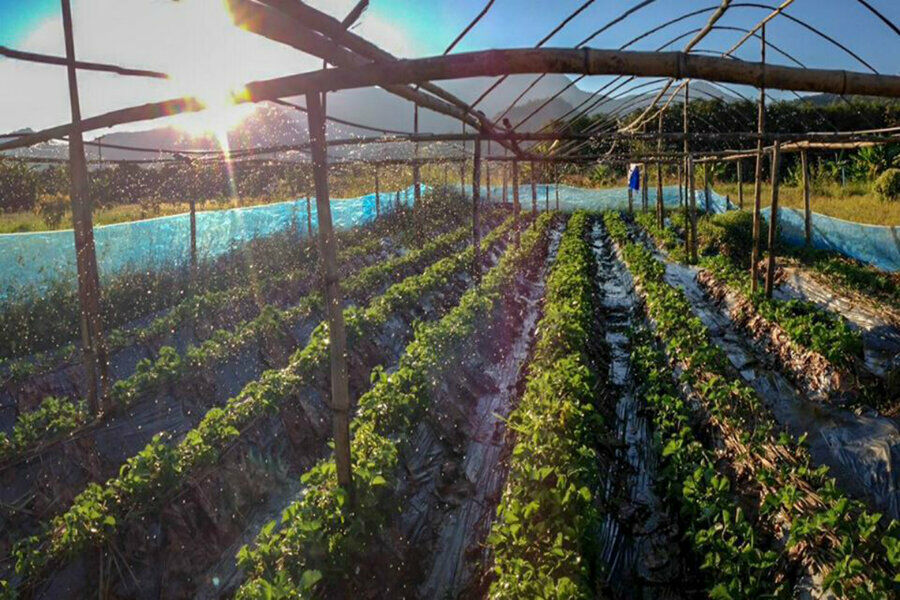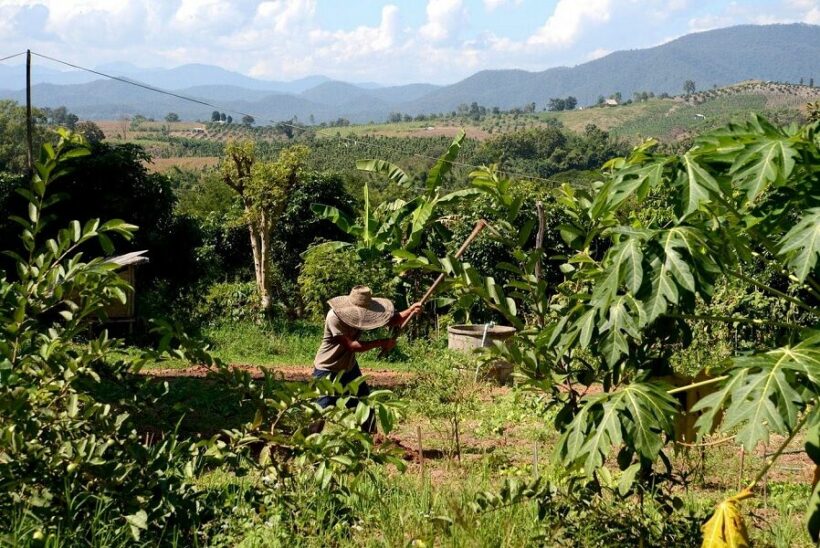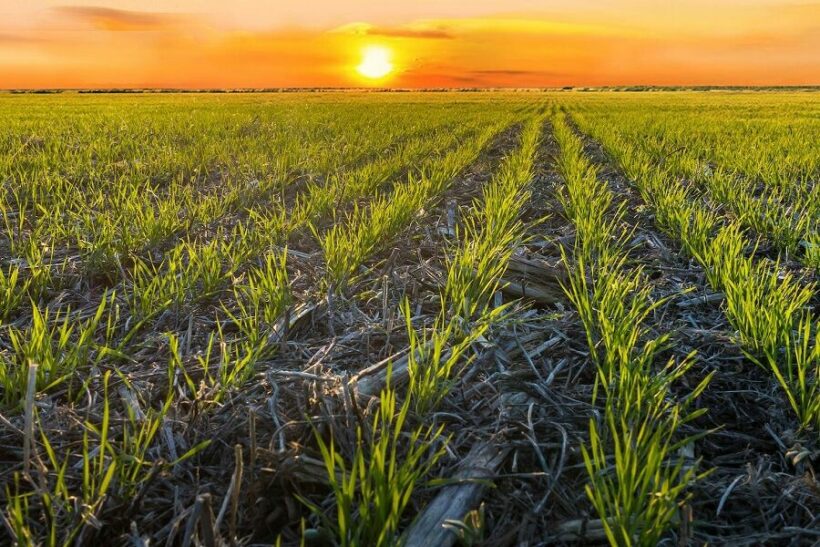Sustainable farming practices in Thailand

In your journey through the evolving landscape of sustainable farming in Thailand, it’s crucial to understand the trends shaping agriculture today. One significant shift is the embracing of sustainable agriculture as a necessity, not just a choice. This movement is driven by the imperative need for environmental preservation and the adoption of ecosystem principles, which aim to create a balance between human activities and the natural world.

Technology’s role in this transformative era can’t be overstated. Precision farming, empowered by satellite imagery, soil sensors, and climate data, allows for informed decision-making. This data-driven approach optimises resource use, reduces waste, and boosts efficiency. It’s a testament to how integrating cutting-edge technology with farming practices not only enhances productivity but steers agriculture towards a more sustainable future.
The theory of planned behaviour: TPB
At the core of transforming agricultural practices lies the Theory of Planned Behavior (TPB). This psychological framework suggests that an individual’s behaviour in sustainable farming is influenced by three main factors:
- Attitudes towards sustainable practices,
- Subjective norms, or the social pressures they perceive concerning sustainable farming, and
- Perceived behavioural control, reflects their belief in their capability to perform these behaviours.
By understanding TPB, you can see why certain sustainable initiatives are more readily embraced by communities. When farmers believe in the efficiency and necessity of sustainable farming methods, perceive positive encouragement from their community, and feel confident in their ability to implement these practices, the shift towards sustainable farming not only becomes possible but probable.
FAO’s principles of sustainable food and agriculture
The Food and Agriculture Organization (FAO) has laid down five pivotal principles aimed at leading the agricultural sector towards sustainability:
- Increase productivity, employment, and value addition in food systems.
- Protect and enhance natural resources.
- Improve livelihoods and foster inclusive economic growth.
- Enhance the resilience of people, communities, and ecosystems.
- Adapt governance to new challenges.
These principles guide farmers towards adopting practices that yield better productivity while ensuring the conservation of nature and enhancing community well-being. The adoption of these principles is a testament to the commitment to sustainable farming among the pioneers of this movement in Thailand.
Sustainable supply management
Another cornerstone of creating Corn Heroes is the adoption of sustainable supply management. This approach emphasizes the importance of establishing a supply chain that is both environmentally sustainable and efficient. It includes adopting best practices for soil management, water use, crop rotation, and pest control. By focusing on sustainability in every link of the supply chain, farmers ensure that their practices are not only beneficial for their immediate environment but also contribute positively to the global ecosystem.
The rise of organic farming
When exploring the journey towards a greener future, organic farming emerges as a cornerstone of sustainable farming in Thailand. This approach not only respects the delicate balance of our ecosystem but also prioritizes the health of soil, plants, and animals. As you delve deeper, you’ll discover that adopting organic practices is more than a farming method; it’s a testament to a commitment to environmental stewardship.

Organic farming thrives on the principles of minimizing external inputs and embracing natural processes. By avoiding synthetic pesticides and fertilizers, farmers ensure that their land remains fertile and free from harmful chemicals. This not only enhances soil health but also safeguards water quality, contributing to the broader goals of sustainable agriculture.
Agroforestry: A win-win
When diving into the world of sustainable farming practices in Thailand, you’ll find that agroforestry stands out as a stellar example of innovation meeting tradition. This method is a testament to how you can simultaneously benefit the environment and enhance agricultural productivity. Imagine integrating trees with crops and livestock. This isn’t just a picturesque rural landscape; it’s a strategic move towards a more sustainable and productive form of agriculture.
By adopting agroforestry, you’re signing up for a multitude of wins. First off, the trees play a crucial role in maintaining soil health by preventing erosion and enhancing its fertility. This is not just good news for the current crop but a long-term blessing for the soil’s future productivity. Furthermore, these trees act as a natural barrier, protecting crops from harsh winds and the baking sun, reducing the need for synthetic methods of crop protection.
But the benefits don’t stop at soil health. Water conservation is another key advantage. Trees in agroforestry systems help regulate water cycles, ensuring that both crops and trees have adequate water, thus making every drop count more efficiently. Moreover, integrating trees with agricultural lands promotes biodiversity by providing habitats for various species, which, in turn, aids in pest control and pollination.
Water management: The key to sustainability
In the realm of sustainable farming in Thailand, managing water resources stands out as a cornerstone for achieving lasting success. You’ll find that the intelligent use of water not only supports the health of crops but also plays a crucial role in preserving the environment for future generations.
Firstly, acknowledging the finite nature of water resources is fundamental. This involves recognizing the delicate balance between consumption and conservation. Sustainable practices include the implementation of efficient irrigation systems which minimise waste and maximise output. Techniques such as drip irrigation ensure that water reaches the roots of plants directly, reducing evaporation and runoff.
Furthermore, the quality of water is equally important. Sustainable farming calls for stringent measures to protect water sources from contamination by agricultural chemicals. This includes phasing out harmful pesticides and fertilisers and replacing them with organic alternatives that nourish the soil without degrading water quality.
Are you looking for Thai farmers who are mystified as the government classifies harmless herbs as hazardous?
Latest Thailand News
Follow The Thaiger on Google News:


























